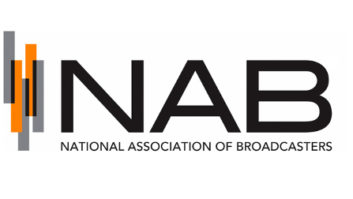The National Association of Broadcasters has reiterated that the main studio rule must go.
NAB says a slew of comments to the Federal Communications Commission overwhelmingly support eliminating the longstanding and familiar requirement for stations to maintain staffed main studios near their communities of license. It made this argument in reply comments supporting a Notice of Proposed Rulemaking by the FCC.
According to the NAB, the commenters provided extensive evidence demonstrating that the rule no longer serves its intended goals and, NAB said, is in fact hindering the provision of the best possible television and radio broadcast service to local audiences.
The association took on the most notable opposition argument, that eliminating a main studio in a community of license will impact the amount and quality of local programming for that community. The NAB disagrees, saying that the rule actually prevents stations from deploying personnel and finances where they are needed most, which is toward investment in programming, coverage of local events and equipment upgrades.
It said opponents provide no legal or factual support for their position, nor do they address the assessment that the rule is harming stations and their audiences by imposing costs that would be better spent hiring news personnel, upgrading stations’ facilities or keeping a unique voice on the air.
The association said these parties fail to recognize the hurdles that the rule imposes on smaller broadcasters, including new entrants, women, minorities and those that serve rural America.
“The commission should eliminate the rule and allow broadcasters to redirect the human and capital resources currently spent on compliance to enhancing service to their local communities,” the NAB said in its filing.
When the rule was adopted, the NAB argued, station personnel often needed to be near a station’s studio because reporters needed the studio’s fixed equipment to originate locally produced programming. Contrast that with newsgathering efforts today, the association said, when programming is gathered in the field and broadcasts can be conducted remotely.
The association turned to comments made by other broadcasters, such as Kona Coast Radio, which said it had to forfeit licenses or construction permits for stations in rural towns “because of the costs of compliance with the main studio rule.” It also cited New Hampshire Public Radio, which said killing the rule would remove uncertainty associated with NHPR’s operations, including their service to small towns that “simply could not support a station if a main studio were required.”
Comments in the FCC ECFS database on this issue, however, were not one-sided.
For example, Common Frequency Inc., a nonprofit that promotes public participation in broadcasting, said the local responsibilities of broadcasters cannot simply be surrendered because technology now enables it.
“If anything, in the internet area where localism is suffering, community diversity is increasing and local journalism is failing, cancellation of local studio obligations is the exact opposite of the information dissemination demands of our local communities,” the group said in its filing. “The main studio rule is supposed to ensure station employee-to-community member relationships is fostered at the community level.”
According to the NAB, however, those who seek to retain the current rule “fail to show how the rule promotes its intended goals, and disregard record evidence of both technological change and the public interest benefits of eliminating the rule.”
Comments on the issue can be reviewed in the ECFS database using MB Docket No. 17-106.












